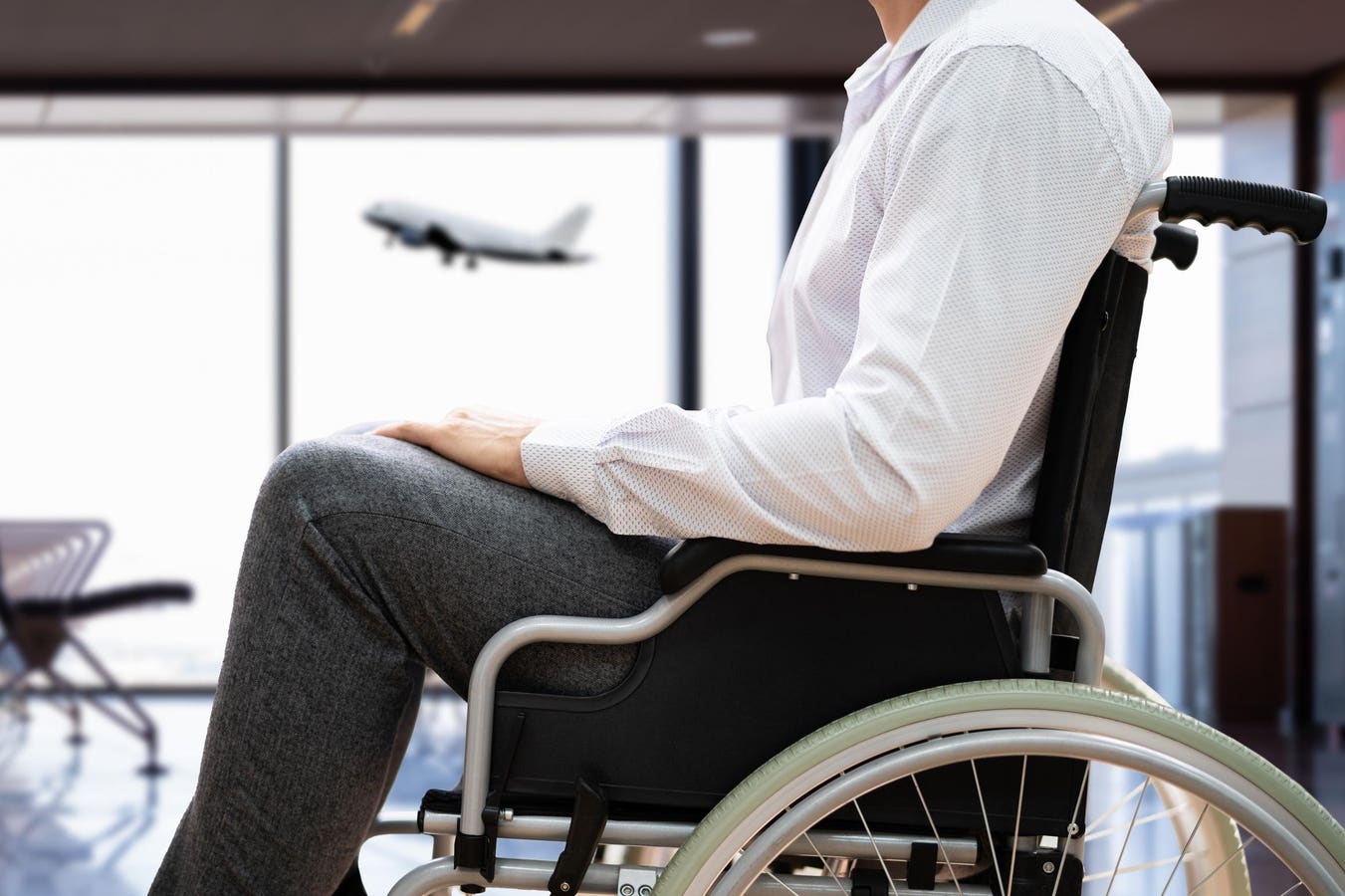
The horrific experiences of passengers with serious mobility impairments wishing to exercise their civic rights to travel by air with dignity was once more brought to the fore last week after an upsetting documentary on inaccessible transportation systems was screened by CBC.
The Canadian broadcaster’s Marketplace program. which used hidden camera footage, focused on the travails of Toronto-based Alessia Di Virgilio who was born with mobility impairments affecting her muscles and lungs. She is unable to sit upright without support and uses a highly specialized custom wheelchair to get around. Di Virgilio additionally requires a ventilator to help her breathe.
In one of the short documentary’s most shocking scenes, the viewer sees airline assistance staff accidentally disconnect Di Virgilio’s ventilator while attempting to transfer her between the aircraft and her wheelchair. In another scene, Di Virgilio is struck on the head and almost dropped on the ground after a hoist used to place her in her aircraft seat is mishandled by staff. Later, we hear a member of assistance staff admitting that he has not used the passenger assistance equipment for around seven years, despite airlines being mandated to update their staff training regularly.
Addressing her experiences during the Air Canada roundtrip from Toronto to Charlottetown, Di Virgilio said, “I just feel like the system, the planes, the structure, the process, the bureaucracy … is not meant for people like me. And when you try and enjoy a little bit of life, this is what you get to get there.… It’s just hard.”
Later she added, “It just felt like people weren’t trained properly…..People didn’t really know what they were doing.”
Whilst confirming that it had reached out to her to apologize for her harrowing experience using their service, Air Canada refused to comment on Di Virgilio’s case specifically although the airline told Marketplace:
“The vast, vast majority of customers with mobility needs traveled without issue and in those relatively rare instances where barriers were encountered, we moved quickly to address concerns.”
The documentary may serve as an eye-opener to some who are unaware of the significant mental and physical toll involved in flying as a disabled person in 2023, despite this being an era of maturity for disabled civil rights given that the passing of landmark legislation such as the Americans with Disabilities Act occurred some 30 years ago.
It does however come as no surprise to disability experts such as Jeff Preston, an associate professor of disability studies at King’s University College in London, Ontario and a wheelchair user who viewed the footage of Di Virgilio and commented on how disabled people commonly feel after such experiences:
“This moment of remembering that you don’t have the same rights or the same access as other Canadians, that you are asked to fundamentally live a lesser life because of your difference, that it’s your responsibility to fit within this broken system as opposed to the system saying we need to do fundamentally better,” Preston explained.
Carrot and stick
If programming like the Marketplace investigation represents the stick when it comes to the naming and shaming of airlines, a partnership announced earlier this month by the Muscular Dystrophy Association in the United States would appear to be more of a carrot approach to solving the problem.
MDA is to partner with the Transportation Security Administration to establish training for TSA officers focused on interactions with travelers living with neuromuscular disease and other mobility disorders.
The charity has decades of experience in campaigning for enhanced airline accessibility. In May its advocates visited Capitol Hill to advise lawmakers on accessibility issues ahead of the Federal Aviation Authority reauthorization which was slated for September but has only been renewed until the end of the year on a short-term basis. Alongside its political endeavors over the summer, the charity also released its own galling video of one of its advocates Madison Lawson featuring her recent experiences of dehumanizing manual handling by airline staff as well as damage to her specialized motorized wheelchair. The video has been viewed over two million times.
The new training program will focus on passenger safety, dignity and comfort and will make particular use of video resources to hammer home its core message on the struggles commonly endured by passengers with disabilities when taking to the skies.
Commenting on the partnership, MDA’s Vice President, Public Policy and Advocacy Paul Melmeyer said:
“Much of the air travel experience for people with disabilities is demeaning, dehumanizing, undignified, and even sometimes dangerous. While TSA’s security review of people with disabilities may be just one part of the experience, this partnership is a step toward a more secure, accessible, and equitable air travel experience for all individuals who are living with disabilities.”
Notwithstanding the above, as far as the bigger picture goes, many may justifiably consider media exposés and advanced training initiatives as ultimately skirting around the edges of the core issue.
At its heart, airline accessibility is about one of the oldest but most pervasive barriers of all – inaccessible physical spaces. Until individuals who are dependent throughout the day on specialized mobility equipment can remain in their devices during a flight there will always be a risk of damage to human bodies and minds as well as the devices themselves.
This will necessitate something of an overhaul of aircraft cabin design and systems as well as having the federal legislation in place to mandate these changes. Though the early stages of this process are outlined in the current FAA reauthorization bill, due to the complexity, the journey is likely to be long haul in nature.
In the meantime, the art of the possible can only try to focus on improving a system that remains inherently unjust and imperfect and whether it is predominantly the carrot or the stick approach used to plot this course, that’s always going to be less important than the final destination.
